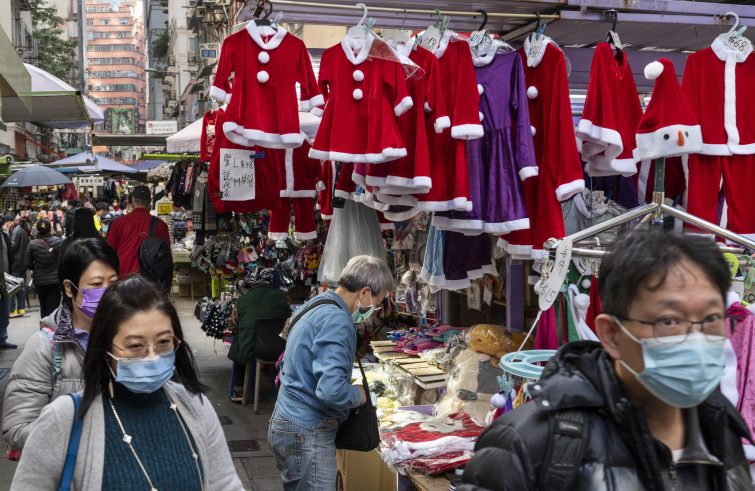
The city illuminated overnight will experience a lights-out Christmas this year. Father Paolo, italian missionary, used this image of Hong Kong to describe the atmosphere in the city today. Polls for the renewal of the Legislative Council (LegCo), the parliament of Hong Kong, the ex-British colony due to return to Chinese sovereignty, have just closed. In the first elections held since the anti-government protests and the new electoral system imposed by Beijing, over 4.5 million people were expected to vote, but only 1.35 million responded, resulting in a record low turnout of 30.2%. “Hong Kong is a brightly lit city even at night. The spectacle of lights in each home are a wonder to behold. They tell us that behind every brightly lit window there is a family with its hopes and dreams,” said Father Paolo. He then added: “The prevailing feeling in Hong Kong today is a loss of hope for the future.”
“This Christmas, lights will be turned off in many homes in Hong Kong”
“Many people ( more than 90,000) have left the city and moved abroad, especially to England or Canada,” the missionary explained. “In other homes, the lights will be off because, given the government’s decisions limiting all forms of opposition, many have lost hope that there might still be a future for Hong Kong. The lights turned out in other households are linked to the age-old problems of Hong Kong, cramped spaces, long working hours, the loneliness of the elderly. I hope that in the homes of those who celebrate Christmas lights will be kept on as a reminder of the Light that comes into the world to pierce the darkness, to remind everyone that the true Light is always in our midst, and however strong the darkness, the Light is always brighter.
In the wake of anti-government protests that have continued since 2019 with rallies, often violent, in the streets and in universities, 10,000 police officers were deployed across the city to ensure a smooth election. According to the rules imposed by Beijing, the entire pan-democratic front was de facto prevented from participating in the electoral race. In fact every one of the 153 candidates had to pledge political loyalty to China and submit a “patriotism” statement in order to run for a seat. As a result, pro-democracy activists were prevented from running. Actually, many could hardly turn up as they were in prison or fleeing abroad. Furthermore, on a total of 90 seats in the Legislative Council, only 20 seats remained up for popular vote, half as many as before, while the remaining were chosen by pro-Beijing committees that represent special-interest and industry groups.
“These were the first elections under the new National Security Act in Hong Kong and the first where candidates had to certify their ”patriotism” in order to participate,” said Fr Paolo. “Because of this, many people didn’t go to vote but they couldn’t say so because they would be breaching the law, just as casting a blank or invalid vote violates the law.” While voting in Hong Kong is not mandatory, the law severely punishes those who publicly encourage others to boycott elections or encourage forms of protest through speeches or by publishing materials such as emails or leaflets. These crimes are punishable by law with a prison sentence of up to three years. To date, a total of 10 people have been arrested on these charges.
“Since the new National Security Act came into effect on June 30, 2020, all dissent has been silenced,” added Fr Paolo. “It’s one of many reasons why so many people – especially young families with children – decide to leave Hong Kong and emigrate”.
Amidst the “silence” of the mainstream media, life in Hong Kong is radically changing. ” A new subject has been added to school curricula, from kindergarten to university, to teach students about love for their homeland. All schools must provide activities to teach students about flag-hoisting and the national anthem.
Once the polls closed, Hong Kong Governor Carrie Lam took the floor and welcomed the outcome of the vote. “Hong Kong is now back on the right track of One Country, Two Systems,” she remarked. “”We cannot copy and paste the so-called democratic system or rules of the Western countries,” she added, arguing the new rules had been enforced to restore “political quiet” in the city. Carrie Lam is expected in Beijing today, Monday December 20, where, according to Chinese media, she will meet President Xi Jinping on Wednesday and is expected to brief “state leaders on the local government’s work carried out in 2021 and the political agenda for next year.”












